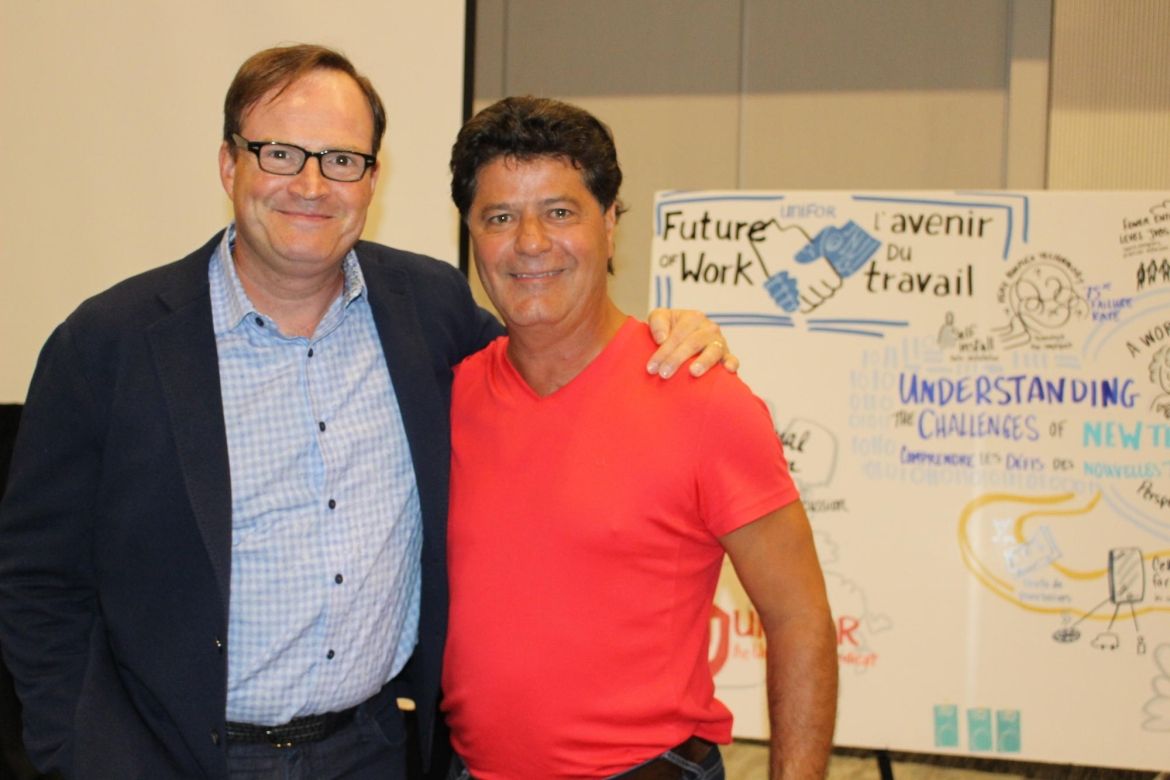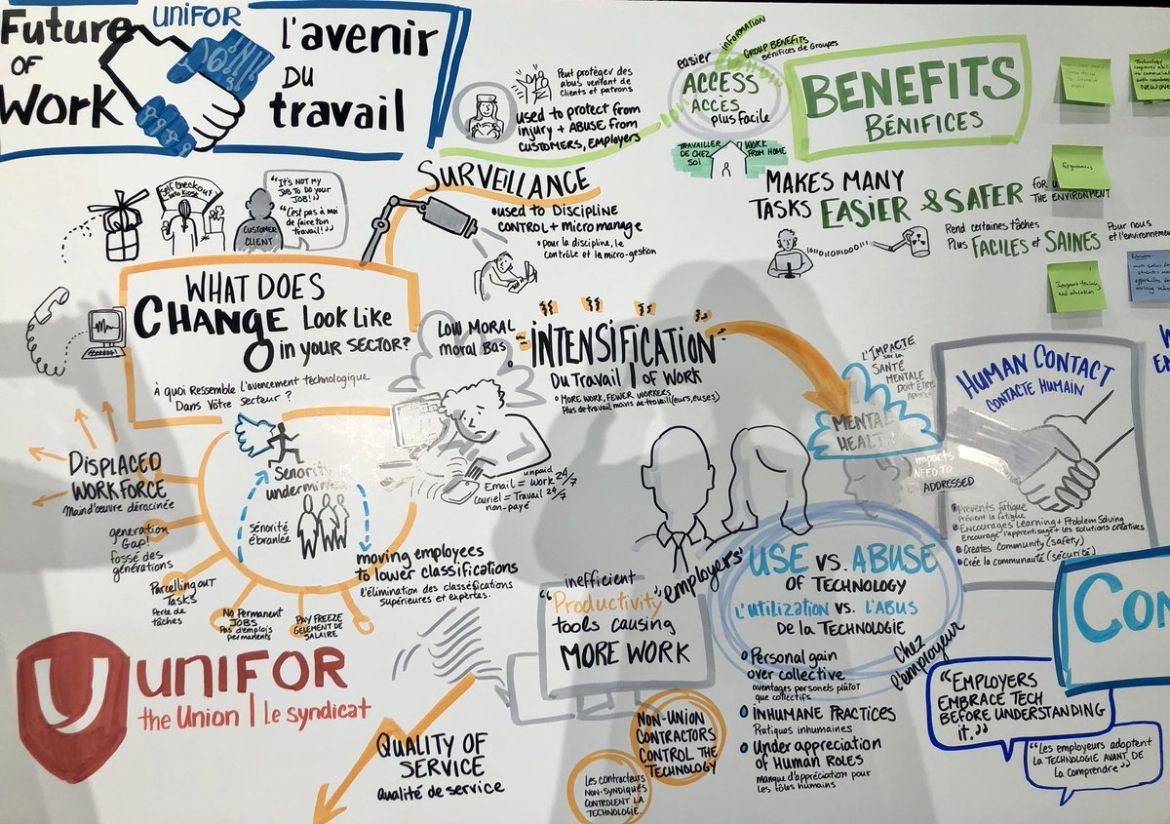
Share
Members from across the country were in Halifax on August 15, 2018, to attend the Automation, New Technology and the Future of Work conference. As the world of work changes rapidly, new technologies are more frequently introduced in the workplace. Conference delegates came together to discuss, learn and develop a strategy for the future of work that puts workers first.
“In a system where profits and productivity are paramount, there will always be a desire for corporations to invest in labour-saving technology,” said Jerry Dias National President. “The Future of Work conference brought members together to craft bargaining and political action strategies to deal with automation, artificial intelligence, and the growth of the digital economy.”
Angelo Dicaro, acting Unifor Research Director, kicked off the conference with a presentation on the union's newly minted research paper The Future of Work is Ours: Confronting risks and seizing opportunities. The research paper makes it clear that automation, artificial intelligence and other forms of new technology are here to stay and will continue to create challenges that workers will face in workplaces and industries around the world. The research paper also discusses possible solutions and strategies to confront technological changes at work.
After the introduction to current issues with automation and technology, participants broke into smaller groups organized by sectors so that tangible, specific strategies and ideas could be developed for workplaces and bargaining.
During the report back led by facilitators, certain themes emerged. It was noted that there was significant anxiety in most sectors about job security, but there was also a degree of optimism, especially among skilled trades members. The latter sentiment helped focus the discussion on the fight-back: the role of unions in forcing technological change in order to make work safer and create new jobs.
Collective bargaining was identified as a key tool for worker power in both protecting jobs at individual worksites, but also at leveraging transition for workers into new roles. Regionally and nationally, it was emphasized that Unifor must push for an even stronger social safety net that includes employer or government-sponsored training.
Participants discussed the potential that green technology holds for green jobs, and resisting the green-washing (especially in the hospitality industry) that merely reduces work hours.
The conference’s final session hosted a panel of experts to offer additional analysis and provide several public policy and tax changes that could protect good jobs and help Canada stay competitive into the future. Guests Sunil Johal, Policy Director, Mowat Centre and Christine Saulnier, Director, Canadian Centre for Policy Alternatives – Nova Scotia had a wide-ranging conversation about areas where Canada’s skilled workforce and value-added is a strength and not a disadvantage. In the evening delegates were treated to a live viewing of the hit CBC Radio show “the debaters” where comics went toe to toe in a battle of laughs debating if work should be replaced by robots.
The conference is the first of many steps in Unifor’s development of a long-term plan to put workers’ interests on the forefront of technological changes in our workplaces.




